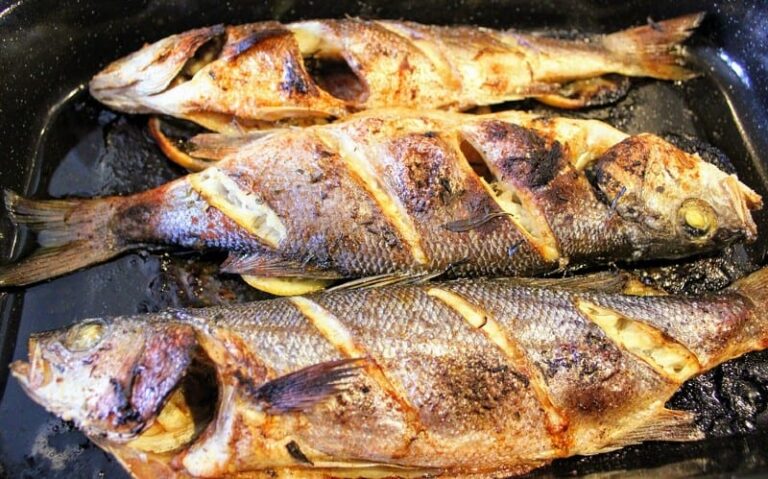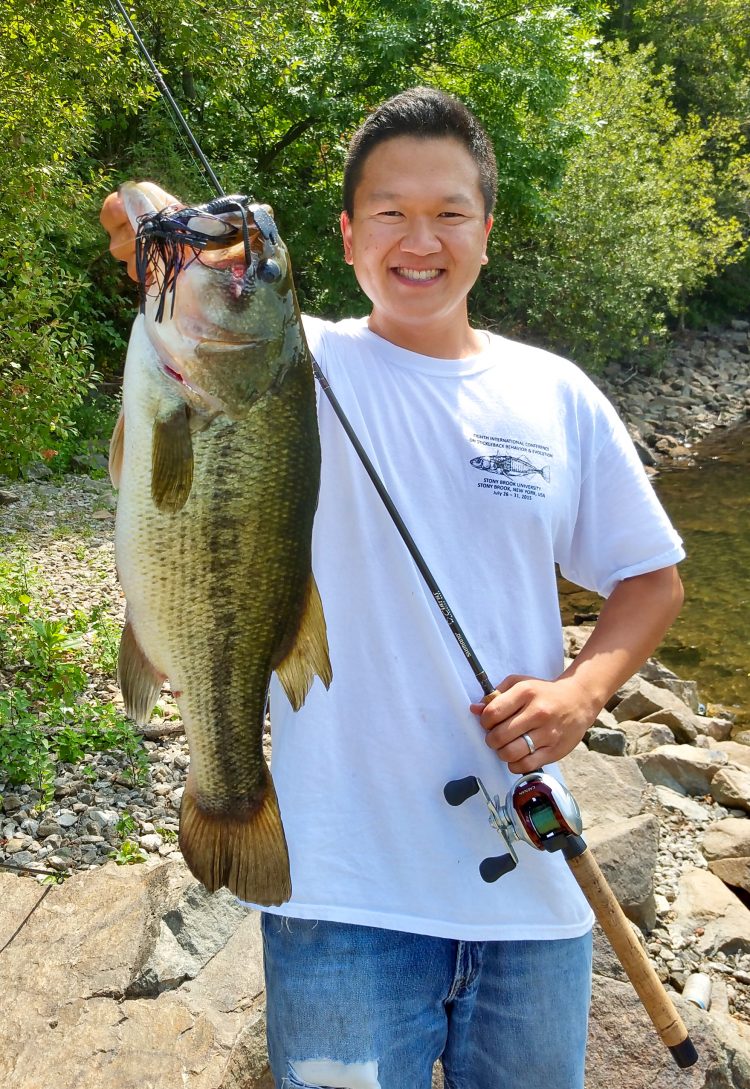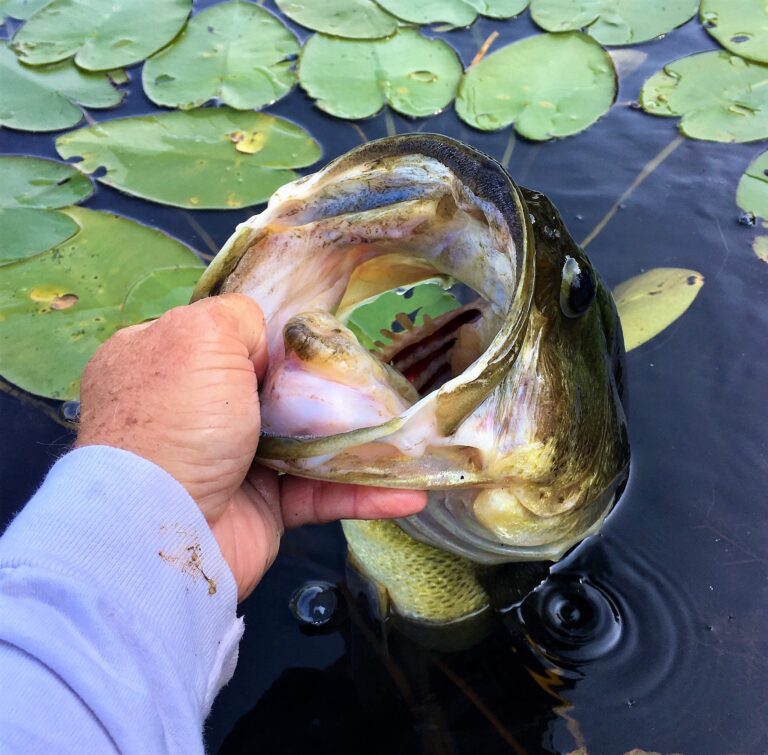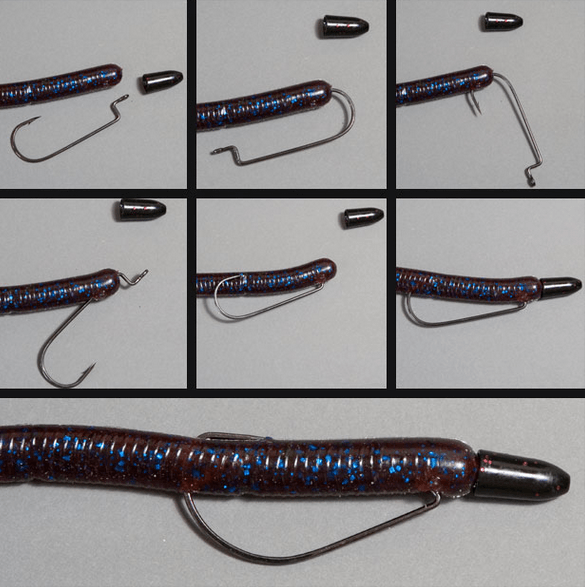How to Fish a Drop Shot Rig for Bass
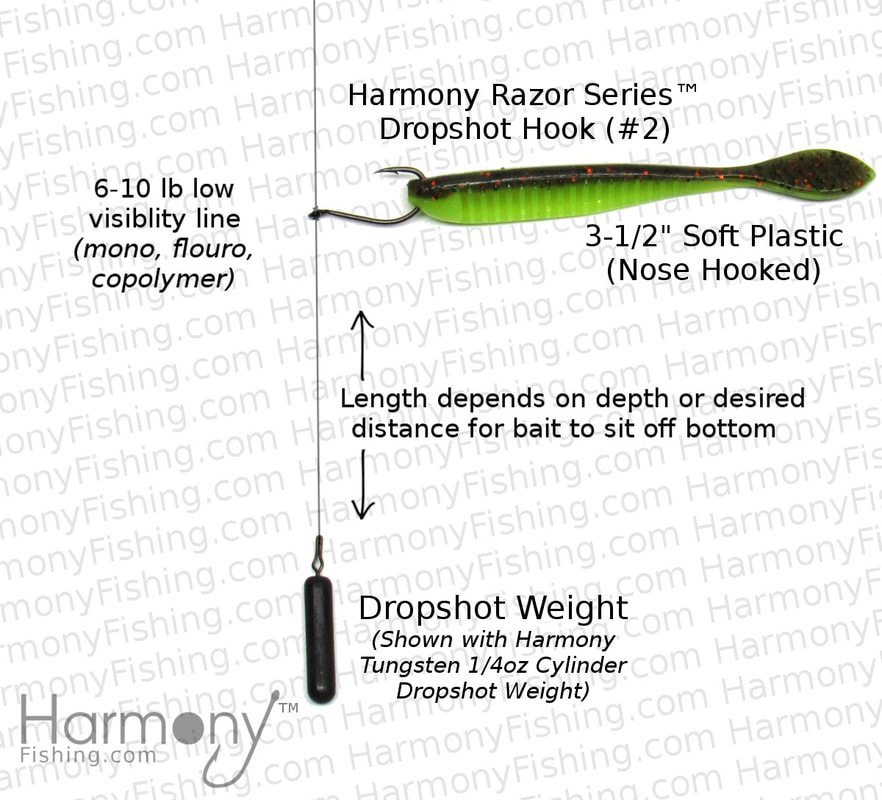
To fish a drop shot rig for bass, tie your hook with a Palomar knot leaving a long tag end to attach a weight. Cast near structure, let it sink, and gently twitch the rod to impart action.
Fishing a drop shot rig is a highly effective technique for targeting bass, appealing to anglers of all skill levels. This finesse method allows for a natural presentation of the bait in the water column, simulating a vulnerable prey. It’s particularly useful in clear water where bass are notorious for being finicky.
Simple and versatile, the drop shot rig separates the weight from the lure, giving the angler precise control over the bait’s movement. By mastering the nuances of this approach, you’re likely to experience increased success during your fishing outings, especially in challenging conditions where bass are less aggressive. Perfecting the drop shot can lead to impressive catches, making it a staple technique in the arsenal of successful bass anglers.
Introduction To Drop Shot Rig Fishing
Drop shot rig fishing targets bass effectively. Beginners and pros love it for its versatility. You cast your line with a weight at the end. Above the weight, you tie a hook. Then, you attach a soft plastic lure. This setup lets the lure hang in water. Bass can’t resist this floating snack.
Setting up a drop shot rig is easy. First, select a thin, strong fishing line. A suitable line helps in deep and clear water. Next, choose the right weight. The depth of water decides this. Heavier for deep waters, lighter for shallow.
Now, for the lure, soft plastics work best. They look like small fish or worms. With the right lure, bass will bite more often. Soft plastics move naturally in water. They trick the bass into biting. Remember, patience is key in drop shot rig fishing!
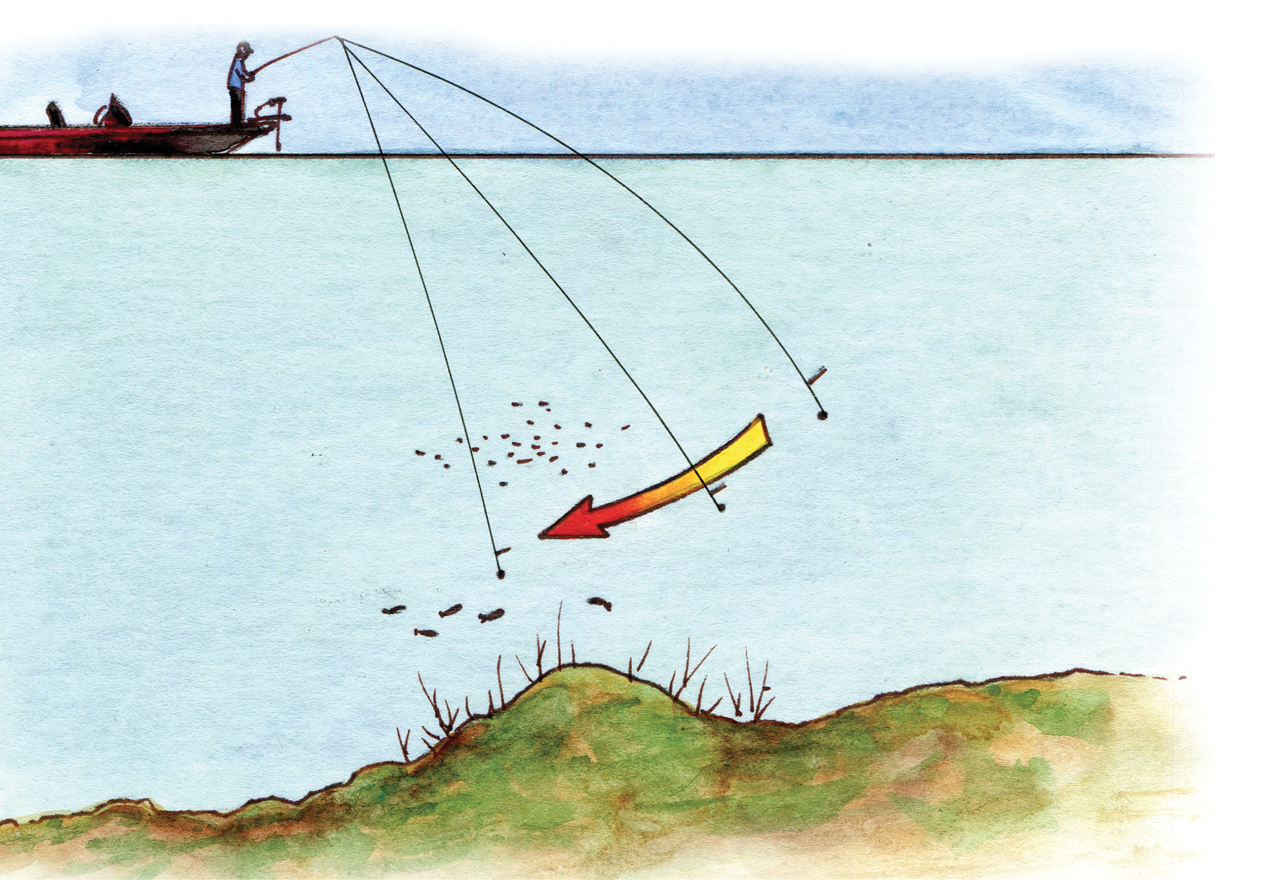
Credit: www.bassmaster.com
Essential Gear And Tackle
For successful bass fishing, getting the right rod and reel is crucial. A medium-light to medium action rod is ideal. It offers sufficient flexibility for subtle bites. Pair this rod with a spinning reel for easy line management.
Weight selection depends on depth and wind. Lighter weights, such as 1/8 to 1/4 ounce, are great for shallow water. Heavier weights, up to 1/2 ounce, will hold well in deeper or windier conditions. Cylinder weights cause less snagging.
Select hooks that are sharp and right-sized. A Size 1 or 1/0 hook is a good match for most baits. The hook must be small for the drop shot rig to work best. Use a thin wire hook for effortless hooksets.
Setting Up Your Drop Shot Rig
Catching bass with a drop shot rig requires a solid setup. Master the Palomar knot for secure hook attachment. For best results, keep the hook and weight properly spaced. Ideal spacing depends on the fishing conditions. A general rule is to start with a 12 to 18-inch gap. This allows the bait to suspend above the bottom, tempting bass effectively.
| Condition | Recommended Spacing |
|---|---|
| Clear Water | 18-24 inches |
| Weedy Areas | 12-16 inches |
| Rocky Bottom | 6-12 inches |
Adjust the space to meet the day’s unique needs. Always supervise kids when they prepare rigs. Enjoy your fishing with a well-set drop shot rig!
Selecting The Right Baits
Selecting the right bait is crucial for effective drop shot rig fishing. Bass typically feed on a variety of prey. To increase your chances of a catch, it’s important to use plastic worms or creature baits that closely resemble the natural food of bass.
Consider using soft plastic worms that wiggle and move naturally in the water. These can trigger strikes from bass who think they’re chasing real prey. Creature baits, which come in shapes like lizards, crayfish, or insects, are also great for mimicking bass food. They are perfect for fooling picky eaters.
Color selection should mirror the environment. Use darker colors in murky water, and lighter shades in clear water. Paying attention to these details will make your drop shot rig much more enticing to bass.
Mastering The Drop Shot Technique
Mastering the Drop Shot Technique demands skill and finesse. Achieving precision with your cast is crucial. Aim directly at your target to increase your chances of catching bass. Short and controlled casts work best. With each cast, focus on a specific spot where bass might lurk.
The subtle shake of your rod tip can make all the difference. It’s not about vigorous shakes but rather slight twitches. This mimics a struggling baitfish. This action entices bass to strike. Keep the rod tip up and gently twitch it. Patience is key for this method to succeed.
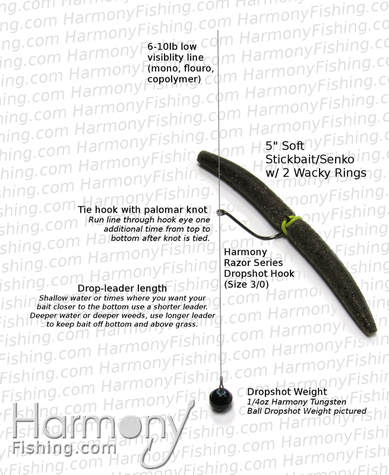
Credit: www.harmonyfishing.com
Locating Bass With A Drop Shot Rig
Finding bass with a drop shot rig requires good water reading skills. Observe the surface for natural clues like birds feeding or baitfish activity. Look for changes in water color or ripples. These can signal underwater structures where bass may hide.
Using electronics like fish finders is essential to locate the sweet spot. They show depth changes, temperature, and structures clearly. Fish finders also display fish, making it easy to target specific areas. Try to find places with lots of rocks or trees, as bass love these spots.
| Feature | Benefit |
|---|---|
| Water Clarity | Clearer water often holds bass. |
| Surface Activity | Signs of life suggest bass are near. |
| Underwater Structures | Bass use these for hiding and hunting. |
Advanced Drop Shot Strategies
Bass fishing with a drop shot rig demands seasonal strategy tweaks. Water temperature influences bass activity, so adjust your approach accordingly. During spring, focus on shallower waters where bass spawn.
Summer calls for targeting deeper zones, as bass escape the heat. Look for structure and vegetation in water when the temperature rises. Cooler fall temperatures push bass back to shallow areas. This period often calls for more aggressive retrieval techniques.
In the cold of winter, slow your presentation down. Bass will be less active and prefer easy targets. Lighter weights and smaller baits can be more effective. These adjustments ensure your rig is in the right place at the right time.
Water clarity also steers your rig choices. Clear waters mean you should use lighter lines and more natural bait colors. In turbid waters, select brighter colors and bulkier baits to grab attention.
Maintenance And Care For Drop Shot Gear
Regularly inspect drop shot gear for the best results. Check for line frays after each fishing trip. Examine hooks and weights for signs of wear or damage. This ensures your gear is always ready for action.
Storage of tackle is key to longevity. Use compartmentalized boxes to separate and organize baits. Keep soft plastics away from heat to prevent melting. Storing gear in a cool, dry place is essential to avoid corrosion and maintain the quality of your baits and tackle.
Case Studies
Many professional anglers have mastered the drop shot rig for bass. Their stories reveal key strategies and tips for successful fishing. One expert caught a trophy bass, using only a light line and a small lure. This technique required immense patience and skill. Another success comes from an angler who won a tournament. He attributed his win to the subtle movements of the drop shot rig in deep water. Both cases emphasize the need for precise weight placement and lure selection. These insights can drastically improve your own fishing.
Those new to bass fishing can also learn quickly. One beginner shared how they landed several bass on their first trip. They followed a simple rule: keep the rig close to the bottom and maintain a steady hand. This approach, along with choosing the right time of day, led to an impressive catch. Understanding the basics can lead to early and exciting victories on the water.
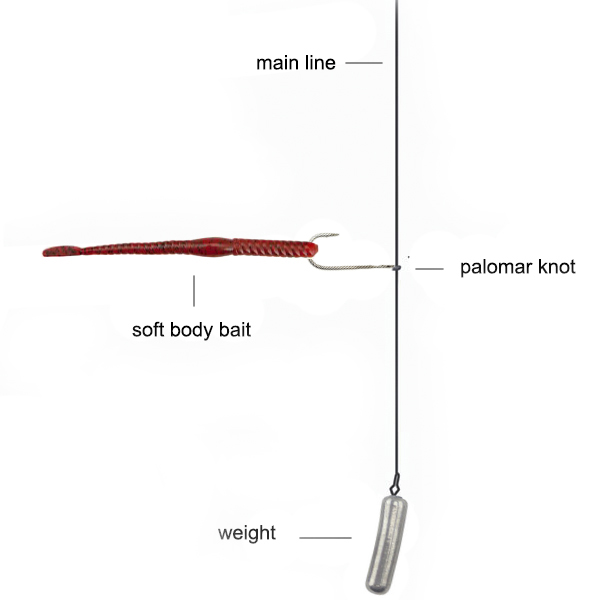
Credit: norrik.com
Concluding Tips
To improve drop shot rig success for bass, keep your line tight. A slack line means lost fish. Always feel for the subtle bites, often a challenge for beginners. Fishers should use light lines and weights to ensure a natural bait presentation.
Regular rig checks are crucial to avoid twisted lines. Twisted lines can lead to fewer bites. Sharpen your hooks, as dull hooks miss catches. Make sure your weight is not too heavy, as it may kill the bait’s movement. The goal is to mimic the natural movement of prey.
Every outing on the water can teach new tricks. Ask other fishers for tips or watch instructional videos. Most importantly, spend time practicing. With each cast, your technique will refine, leading to more bass on your line.
Frequently Asked Questions Of How To Fish A Drop Shot Rig For Bass
How Do You Rig A Bass Dropshot?
Tie a Palomar knot to attach your hook, leaving a long tag end. Thread the tag end back through the hook eye so it stands perpendicular. Attach a dropshot weight to the end of your line, 18-24 inches below the hook.
Place your soft plastic bait onto the hook.
What Is The Best Setup For Drop-shot Fishing?
For optimal drop-shot fishing, use a 6-8 foot medium-light rod, a spinning reel with 6-10 lb fluorocarbon line, a 1/4 to 1/8 oz weight, and a size 1-2 hook. Tailor the bait to target species for best results.
How Deep Do You Fish A Drop-shot?
For drop-shot fishing, target 1-3 feet above the bottom for suspended bass or adjust depth according to fish location on your sonar.
What Is The Best Drop-shot Bait For Largemouth Bass?
Soft plastic baits, such as finesse worms, are highly effective for largemouth bass drop-shot fishing. Roboworm Straight Tail Worms also emerge as top choices due to their lifelike movement and variety of colors.
Conclusion
Mastering the drop shot rig can elevate your bass fishing game. With practice, patience, and the right techniques, you’ll enjoy more successful outings. Remember to adjust weight, leader length, and bait as conditions dictate. Get out on the water and experience the thrill of landing bass with your newly honed skills.
Happy fishing!
Also Worth Reading:
- Can You Fly Fish for Bass
- How Fast Does a Largemouth Bass Grow
- How Long Does a Largemouth Bass Live
- How Old is a 5 Pound Bass
- How to Bass Fish With a Frog
- How to Catch Hybrid Striped Bass
- How to Catch Peacock Bass
- Can Hybrid Striped Bass Reproduce
- Can Largemouth Bass Live in Saltwater
- Can You Eat Bass from a Lake?
